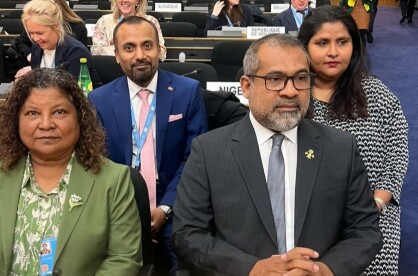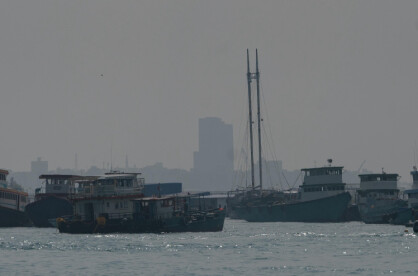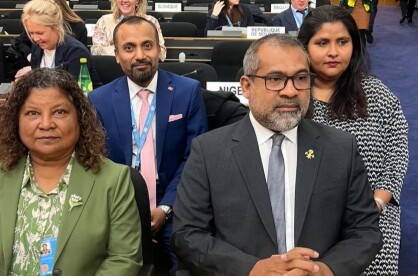The unsustainable wage bill
'Hard decisions' deferred over several administrations may have devastating future economic impact.

'Hard decisions' deferred over several administrations may have devastating future economic impact.

The government, in its proposed budget for 2022, estimated expenditure on wages, salaries and other allowances for state employees at MVR9.7 billion, a 13 percent increase over the MVR8.2 billion in revised estimates for 2021, which itself is a 5 percent increase over 2020. Add to this, the budgeted MVR500 million for implementation of the minimum wage, and we have a 19 percent increase in nominal wages for 2022.

According to the budget proposed to parliament, the state wage bill accounted for 23 percent of total expenditure and 36 percent of recurrent expenditure in 2021 and is expected to increase to 26 percent and 39 percent respectively in 2022, not including the impact from the implementation of the minimum wage. In fact, wages account for the largest proportion of any category in the budget, with subsidies and assistance accounting for 14 percent in 2021, and development-related expenditure accounting for only 19 percent.
In terms of number of employees, civil servants account for the largest proportion of public sector employees, at 55 percent of the projected 46,216 employees in the public sector in 2022, followed by uniform bodies at 21 percent and independent institutions at 10 percent. Contract employees, which includes foreign teachers and medical professionals employed in the education and health sector, account for 11 percent, while political appointees account for 2 percent.

However, considering wages paid across categories, average wage for elected officials is the highest, averaging more than MVR80,000 per employee. Civil servants on the other hand, have the lowest average wage, around MVR15,000 per employee.

With such a large wage bill, one must question the effectiveness of the services provided by public sector employees. Take for instance, the Anti-Corruption Commission, which recently said at a parliament committee that it will not be able to complete investigations into the Maldives Marketing and Public Relations Corporation (MMPRC) corruption without additional staff. Or the numerous cases that have been deemed not prosecutable by the Prosecutor General's Office over some missing information or inadequate investigations. Or the release of those allegedly involved in drug trafficking who are invariably released over some technical complication or issue. The list goes on and on. So, what exactly is the public spending close to 11 percent of GDP on?
The Maldives Police Service (MPS) and the Maldives National Defence Force (MNDF) both combined account for close to MVR1.8 billion from the total wage bill, with the MPS taking more than MVR1 billion of this. With police presence established across the country, one would think that with such high spending on wages, there would be a corresponding decline in crime rates. However, the statistics beg to differ. The same can be said of other sectors as well.
While laying off or rationalising public sector employment is regarded as 'political suicide,' it is imperative that governments put in place a long-term plan to do so. It should also re-consider policies whereby public sector employment, with its guaranteed wages and shorter hours, are given as 'gifts' in return for support during campaigning. The Maldives, with its limited resources and stupendous debt, with plans to add even more, needs to prioritise efficiency and effectiveness over political gains.



